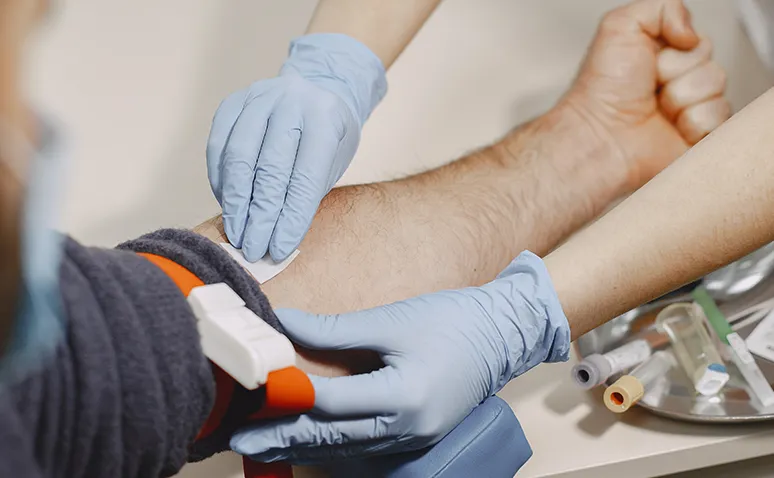Does HPV show up in a blood test this is a common question for those curious about how the virus is diagnosed. Human papillomavirus (HPV) is not typically detected through blood tests. Instead, it is identified directly from cellular samples. As a result, standard blood work does not reveal the presence of this virus.
Does HPV show up in a blood test while the answer remains no, some advanced tests that assess immune system responses may offer indirect insights. Still, for a definitive diagnosis, methods like the Pap smear or HPV DNA test are required. These tests are especially crucial in cervical cancer screenings. In women, diagnosis involves sampling the cervix, whereas in men, a swab from the genital area is used.
HPV diagnosis methods:
Does the HPV Virus Show Up in a Blood Test?
HPV (human papillomavirus) is a widespread virus that affects the skin and mucosal surfaces, with many subtypes. It often progresses silently without symptoms, which makes it more difficult to diagnose.
One of the most common concerns is whether the HPV virus shows up in a blood test. However, this virus cannot be detected directly through blood analysis. Accurate diagnosis requires specialized tests.
Today, several testing methods are used to identify HPV infections. Among them, the HPV test works by analyzing cervical cell samples to detect the virus’s genetic structure.
Certain high-risk HPV types are associated with cervical cancer. Regular check-ups are vital for early detection. The Pap smear test is another screening method that tracks abnormal changes in the cervix.
In suspected cases of hpv, the following methods are used:

HPV is mostly transmitted through sexual contact, and individuals carrying high-risk strains face a greater chance of developing cancer. Therefore, regular screening is crucial to detect the virus. With proper testing, early diagnosis can be achieved, and a suitable follow-up plan can be initiated.
How Is HPV Transmitted?
Since HPV spreads easily through contact, understanding how to protect against it plays a critical role in reducing the risk of infection. The most common transmission route is sexual activity. However, the virus can also be transmitted via skin-to-skin contact—not just through penetrative intercourse.
Some common modes of transmission include:
Due to the contagious nature of the virus, even condom use does not offer complete protection. Some HPV types settle on the external genital areas, which are not always covered by condoms. That’s why regular health check-ups are important for both men and women.
In some individuals, the immune system can suppress the virus, while in others, it may remain asymptomatic for a long time.
Frequently Asked Questions
Which test identifies HPV?
The most accurate method is the HPV DNA test, which detects the virus’s genetic material from cervical cell samples.
Can HPV be detected through a blood test?
No, HPV cannot be directly identified in blood tests. Blood analysis does not reveal the presence of the virus; cellular samples are required for diagnosis.
Is HPV visible in a urine test?
Generally, HPV does not appear in standard urine tests. However, some specialized laboratories may conduct HPV DNA testing from urine samples in men, though the accuracy is lower.
Can sexually transmitted diseases be detected in blood tests?
Yes, diseases like HIV, hepatitis B, and hepatitis C can be diagnosed through blood tests. However, HPV is not included among these.
How is the HPV test performed in men?
In men, the test is done by collecting a swab sample from the genital area. If genital warts are present, sampling becomes easier and more conclusive.
For detailed information about HPV screening tests and to schedule an appointment, you can contact Denge Tıp.











